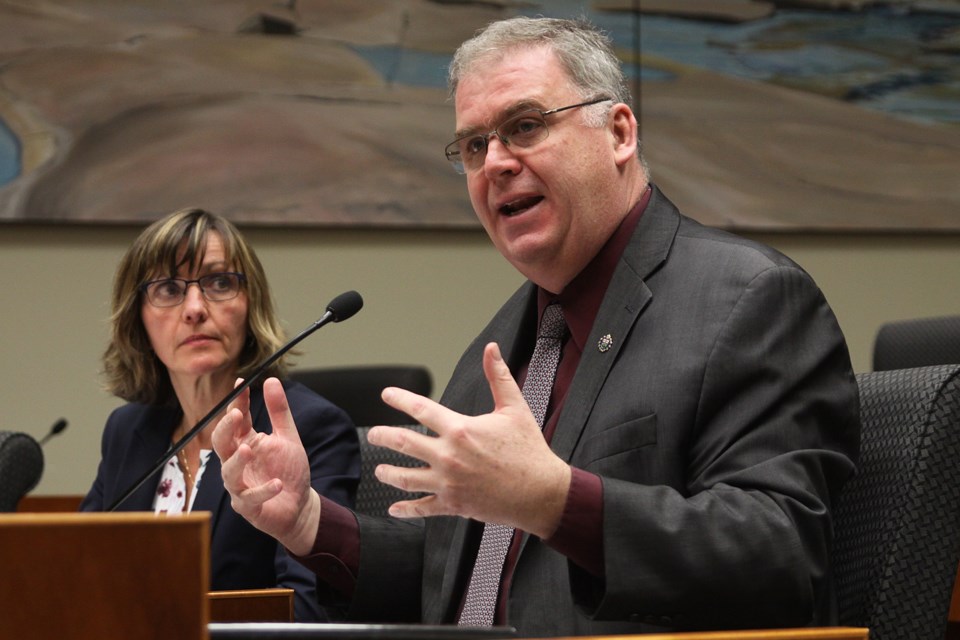THUNDER BAY – The proposed 2022 budget released by the City of Thunder Bay on Tuesday will continue a trend of unsustainable increases to emergency services spending, city manager Norm Gale has said.
The proposed budget would see the city spend $49.2 million on police, $32.3 million on EMS, and $31.3 million on fire services.
Together, that makes up around 36 per cent of the city’s total operating expenses of roughly $329 million.
That doesn’t account for capital spending, where the Thunder Bay Police Service’s request for a $56 million new headquarters would more than double the city’s official capital budget in 2022.
Most of the actual costs, however, would be paid over the course of years through debt financing, beginning in 2025. Gale said the city would also bear some construction run-up costs in 2023 and 2024.
The police service requested a $1.6 million net increase to its operating budget in 2022, a 3.4 per cent bump from the previous year.
The force said that was driven largely by $1.9 million in increased costs for wages, benefits, and overtime.
The Thunder Bay Police Services Board, which oversees the service, also requested the city more than double its budget, from the $223,500 approved in 2021 to $453,700 this year.
The board attributed much of that to improvements in communications, community engagement, and policy development to fulfill recommendations from a 2018 investigation into the services board led by Murray Sinclair.
Asked whether the increases to police spending were sustainable, Gale said costs for all emergency services were growing unsustainably.
The city’s proposed budget also contains a 4.6 per cent net increase to the Superior North EMS budget, and a 2.3 per cent increase for Thunder Bay Fire Rescue.
“The costs for emergency services, not just for police, but for fire and paramedic services, are increasing faster than the costs for other services provided by the city, there’s no doubt of that,” Gale said. “It’s not sustainable, if you want to [avoid large increases to] the tax rate and maintain other programs and services. The math simply does not work.”
Gale said the growth is largely related to increasing demand, with much of that related to issues that would best be tackled by other support services.
“There are a lot of people who need help [that is] not best delivered by emergency responders, yet because of our systems today, often emergency responders are called upon,” he said.
He believes the city will need to reduce growth in 9-1-1 demand “appropriately and responsibly” to confront the problem.
On Tuesday, Gale said that’s possible, but couldn’t identify specific initiatives in the 2022 budget that moved the city in that direction.
The city has introduced a community paramedicine program at Superior North EMS designed to reduce 9-1-1 calls, while the Thunder Bay Fire Rescue master plan approved last year will reduce staffing requirements.
The budget contains an overall tax levy hike of 2.29 per cent after assessment growth, which is estimated at just $300,000 – a significant drop from the already-low $465,000 in assessment growth in last year’s budget.
“Assessment growth has been dwindling for years,” Gale said at a Tuesday press conference. “I think it’s a key goal of city council… that growth is important to them.”
However, he said there were no specific indications yet of a turnaround on the low-growth trend for the city.
